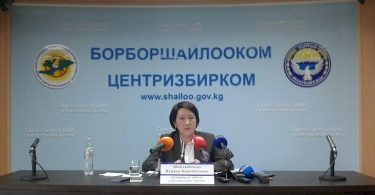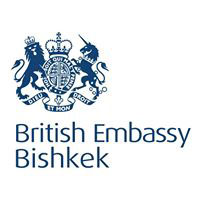A BRIEF SUMMARY OF THE PRELIMINARY REPORT ON THE RESULTS OF INDEPENDENT OBSERVATION OF PUBLIC FOUNDATION “CIVIC PLATFORM”

The election of the President of Kyrgyz Republic in 2017 is an event that sums up the election cycle after the Reform of electoral process that was launched in 2011. The Presidential elections will allow an assessment of state institutions on the introduction of innovations, changes in legislation and improvement of law enforcement practice on improving the electoral system in Kyrgyzstan.
The Public Foundation “Civic Platform” conducts independent election monitoring to assist all state and non-state institutions in improving the effectiveness of electoral processes to assess ongoing reforms, and to improve the effectiveness of the legislative and enforcement framework.
The Independent Observation Report of PF “Civic Platform” provide the public with information on the registration of voters and candidates, the nature of the political campaign, the work of state institutions whose direct activities are aimed to organize and to conduct elections, to report the information about election campaign and disputes arising over the elections in the mass media.
In the framework of independent observation PF “Civic Platform” sent 15 long-term observers (LTO) and 500 short-term observers (STOs) to assess possible violations- whether these violations were isolated cases or systematic, which could affect the quality of the electoral process.
Our report reflects conformity of the election process with the national legislation of the government and international standards for holding fair elections, and and whether the procedures and results of the elections have earned the trust of candidates and voters.
- The three-level system of electoral authorities, headed by the Central Election Commission for Elections and Referendums (CEC), provided general technical training and made the necessary decisions within the established deadlines. The CEC registered 13 presidential candidates, five of which were nominated by political parties, and the remaining 8 candidates are self-nominated.
- Despite the large number of applicants for the post of head of state, the requirements for collecting and providing the required number of signatures and the criteria for recognizing them as invalid significantly complicated the registration process. In most cases, the screening was due to the insufficient number of valid signatures collected and submission of an incomplete package of necessary documents for registration. The CEC has created internal regulations that are unduly restrictive, and in some cases unreasonable, barriers when recognizing authenticated signatures.
- The new electoral legislation contains an oligarchic basis for candidates, because the amount of the candidates ‘own funds and voluntary donations to election funds have reached fabulous amounts, and the absence of claims on the origin of funds and the costs of campaigning has completely made some candidates’ election campaigns indecent huge, especially against the background of the general low living standards of the majority of the country’s population.
- Voters’ lists were adjusted by election commissions and the State Registration Service (SRS) on the basis of voter applications. The creation of a centralized voter register excludes the possibility of multiple voter registration. The number of voters in the final list of voters (on October 4, 2017) was 3 million 25 thousand 768 citizens.
- The pre-election campaign began on September 10. Despite the fact that 13 candidates participated in the election race, several candidates were the leaders of the campaign from the beginning. But the most attention of the public was attracted by the candidates S.Zhenenbekov and O. Babanov, whose confrontation is estimated by many experts as a confrontation of the administrative resource and money.
- Over 80 complaints were registered by the CEC. Most of the complaints were considered at public meetings, and the publication of the results of their consideration was a significant achievement of this election campaign. Most of the complaints were related to the registration of candidates, violation of the rules of election campaigning by candidates and the mass media, and also the abuse of administrative resource. Despite the fact that a lot of information about the administrative resource is being made by public, only few submitted applications on this issue received public resonance. The remaining complaints were rejected due to a weak evidence base.
- In the height of the agitation campaign, the CEC received a large number of complaints after O. Babanov’s speech in residential area of the Osh city”On Adyr”.
- Residents of Osh, including representatives of the Aksakal Council, citizens and representatives of public organizations applied to the CEC with demands to take appropriate measures with regard to the candidate on his performance, up to the cancellation of his registration. This issue is under consideration in the CEC. The arrest of a supporter Babanov raised the “degree of anxiety” in the southern region of the country. The public expects the results of the work of law enforcement agencies and security agencies.
- Despite the legal basis for freedom of the media, the mass media in Kyrgyzstan has been pressured through complaints from citizens, officials, presidential candidates and their staffs, multi-million lawsuits, that in turn raises self-censorship in the media and, lowers the rating of freedom of speech in the country.
- Time of free broadcast on television was distributed among all the candidates who used them as an opportunity to familiarize the citizens with the main directions of their pre-election program. The debates of candidates were broadcasted on the central state TV channel and online, also video with debates was posted on various Internet sites. All this increased the ability of voters to obtain objective information about candidates directly from themselves, because before the debates on television various access to financial, political and media resources placed candidates in unequal conditions. Certain advantages of some candidates were observed both on state channels and NTS. Programs on state channels can be characterized as indirect agitation for Zhenenbekov. NTS promoted the activity of candidate O. Babanov. At the same time both channels providing information to voters, directly or indirectly mentioned certain candidates involved in bribery or using administrative resources.
- Technical preparation for the voting day is assessed as satisfactory. Some of the difficulties that arose with the changes in the procedures for the participation of independent observers through our accreditation were quite positively regulated by the CEC. The access to the monitoring of the voting process will be assessed by us directly on election day.
This version is for the mass media. More details of report you can see the link https://platforma.kg/?p=7349 or contact with the coordinator for long-term observation Almaz Abdykerimov. Tel. 0 312 91-10- 10; 0312 88 -71-71.
















